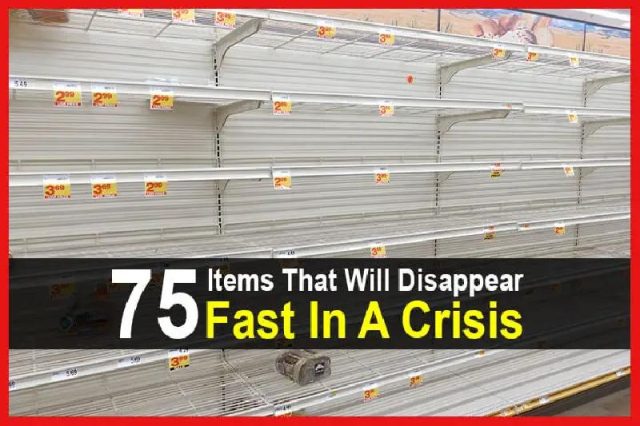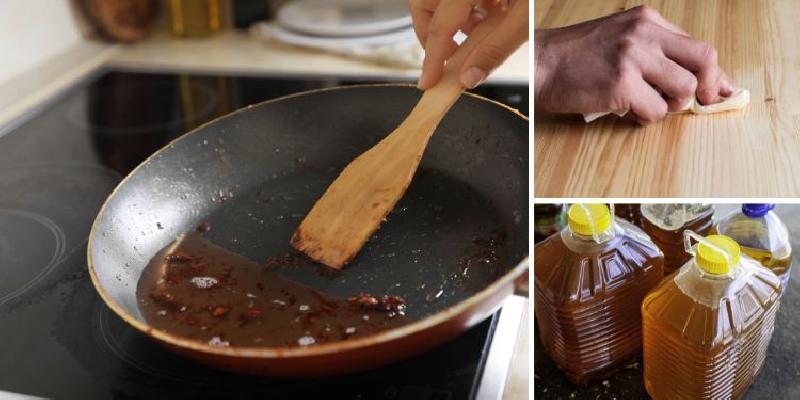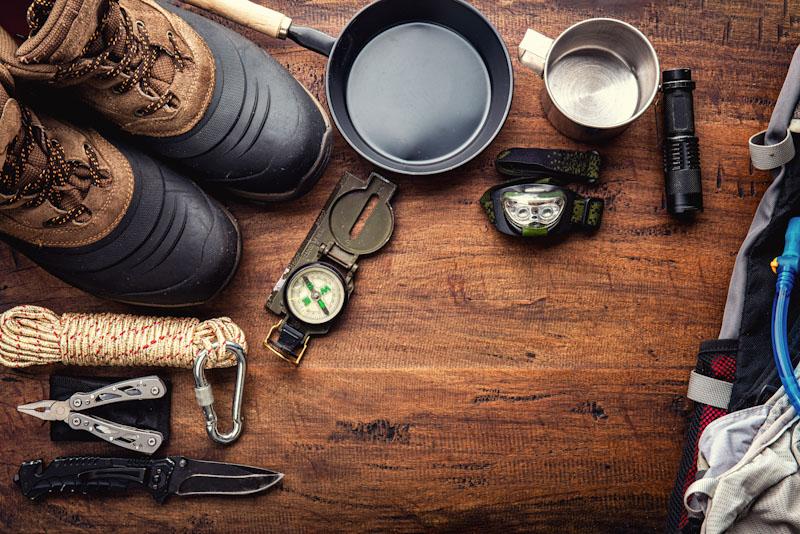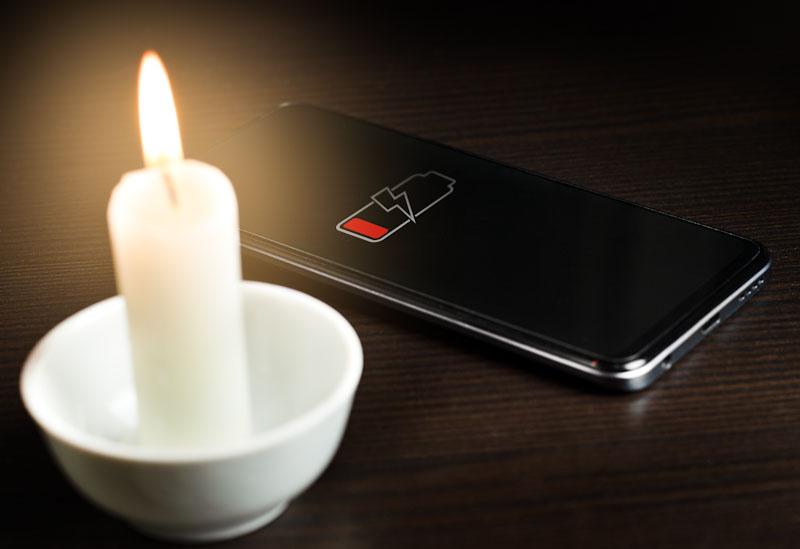The photos show up in the media just before or just after every sort of disaster. We see images of people lining up to buy emergency supplies. We also see “sold out” signs and rows of empty supermarket shelves.
Clearly, the time to stock up on these items is not when you need them, but well before you need them. If you are embracing a preparedness lifestyle, you already know you need to plan ahead to protect your family. You certainly don’t want to be one of those people wasting time and precious resources trying to find survival items at the last minute.
Whether it’s a natural disaster such as a hurricane or an earthquake, or a human-made emergency such as an act of war, most essential items will disappear quickly from store shelves. (In many crisis situations, stores may not even be open to serve the public.)
As you build your emergency pantry, here are 75 items to consider stocking up on now – before it is too late.
Want to save this post for later? Click Here to Pin It On Pinterest!

Aluminum Foil – Aluminum foil is an often-overlooked disaster supply item that is useful for all types of cooking and food storage needs. It also has many survival uses.
Animal Food – Don’t forget your pets and your livestock when it comes to stockpiling food. They will need water too.
Antibacterial Soap and Wipes – These will help you keep you clean while saving your precious water supply.

Baby Supplies – Do you have or are you expecting a baby? Diapers, wipes, and formula may be in tight supply during a crisis.
Baking Soda – This stuff is incredibly useful. You can use it for cleaning, deodorizing, and cooking.
Bandanas, Handkerchiefs – These items can help keep you cool and help you breathe easier if air quality is poor. Bandanas also have multiple uses.

Batteries – Have a fresh supply of all the sizes of batteries you need. Rotate them out by expiration dates.
Bicycle Repair Kit – A bicycle is a great way to get around when fuel is scarce, but you’ll need a repair kit to maintain it.
Bleach – Store the plain, non-scented kind with 4- to 6 percent hypochlorite for disinfecting items after a crisis.

Board Games, Coloring Books, Crayons, Playing Cards, Puzzle Books – Don’t neglect the fact that you will have significant time on your hands. Plan to have a supply of no-tech amusements available for your family. I recommend these board games.
Buckets and Containers – You’ll want food-grade buckets for collecting rainwater and other large vessels that are suitable for washing dishes, bathing and storing greywater. Five-gallon buckets are particularly useful.
Candles – Stock up on a supply low-burning candles. They are easy to store and have no expiration date. And here’s how to make an emergency candle.
Cash – If the grid is down, your debit card or charge card will be useless, and the banks may be closed. Have some money on hand at home to use in an emergency. Bartering some of the supplies on this list may also be an option.
Clothespins and Clothesline – You will need these items for their intended purpose, but they also may come in handy for use in building temporary shelters.
Compass – In the event that digital navigation tools fail, a traditional compass will be invaluable for finding your way.

Cookstoves – You probably have one for camping, but you may want to purchase additional propane or kerosene powered cookstoves for use during an extended crisis. Don’t forget the fuel!
Crowbar – A crowbar is invaluable for forced entry into locked or jammed areas and for removing obstacles during clean-up efforts.
Duct Tape – You can’t too many rolls of this life-saver! Here are nearly 50 uses for it.

Energy Bars – Stock up on high-calorie energy bars which provide quick, nutrient-dense food during emergencies where cooking might be impossible.
Extra Basic Clothing – Stock up on basic t-shirts, socks, and underwear in sizes to fit each member of your family. Sweatshirts and sweatpants are a good idea too.
Fire Extinguisher – You should always have a fire extinguisher nearby to quickly deal with small fires before they turn into big fires.
First Aid Kits – See that you are well stocked in the following basic medical supplies.
- Pain relievers
- Rubbing alcohol
- Antibacterial ointment
- Band-aids, bandages and medical tape
- Safety pins
- Disposable sterilized gloves
- Gauze dressings
- Cold medicine
- Prescription medicine
Fishing Equipment – Fishing poles, lines, hooks, and lures will help put food on your table in an emergency.
Flares and Whistles – These items will help you attract the attention of rescuers if you need help.
 Flashlights – You may want to purchase a few solar-powered flashlights as well.
Flashlights – You may want to purchase a few solar-powered flashlights as well.
Fuel – Fuel for your generator, vehicles, tools and your cookstove is essential to emergency survival. Lighter fluid, fire starters, and charcoal also will come in handy.
Garbage Bags – You really can’t have too many of these multi-purpose items. You can use them for storage, as make-shift tarps, as ponchos, and for many other things.

Garden Seeds – Growing your own food will be more important than ever after a crisis. Check your supply of garden tools and gardening gloves as well.
Gasoline Containers – Finding an open gas station will be sketchy in a crisis, but if you do, you’ll want to be able to bring gas back home or to a stranded vehicle.
Generator – Depending on where you live and your budget, you can choose from a permanent generator or a less expensive portable back-up model. (Also, make sure you have the necessary extension cords you need.)

Grain Mill – With a manual grain mill, you can turn stored grains and other foods into flour, expanding your cooking options during long-term emergencies.
Hand-Operated Openers – All those cans of food in your well-stocked pantry won’t do you any good if you can’t open them. Include hand-operated can openers in your emergency pantry.
Insect Netting – Protect your sleeping and living areas from insects with netting, which can prevent disease transmission and improve comfort in disaster-hit zones.

Insulated Ice Chests – These coolers are suitable for keeping food and drink items from freezing in the winter as well as keeping things cool in the warm weather. Keep in mind that some of your essential medicines need to keep cool.
Lamp Oil, Wicks, Lanterns – Speaking of fuel, those emergency lamps won’t do you any good if you don’t have the lamp oil to operate them.
Local Map – You should have a detailed paper map of your county or local area in case you have to bug out on foot and there’s no Internet for cell phones.
Matches and Lighters – Look for the “strike anywhere” variety. You cannot have enough on hand.
Multi-Tool – A high-quality multi-tool can handle multiple tasks, from cutting wires to tightening bolts, making it indispensable in survival scenarios.
Mylar Food Bags – Mylar bags are great for storing food over long periods. They protect against moisture and pests, keeping your food supplies fresh for years.
Non-perishable Food – A well-stocked emergency food pantry should include rice, soup, beans, nuts, oats, flour, dried meat and fruit, and other long-lasting foods. Also, include sweeteners such as honey and sugar, cooking oil and basic condiments, such as salt and pepper. Here is a guide to emergency food storage for newbies.
Paracord – Paracord is incredibly versatile and ideal for everything from crafting sturdy shelters to making fishing lines or securing gear.
Personal Hygiene Items – Feminine supplies, skin and hair care products – all will be in short supply after a disaster. Stock up on these needed items now.
Pest Control – Insects and rodents may be an increasing problem in certain disaster scenarios. Stock up on repellants, coils, and traps.
Portable Stove – A portable stove can serve as a heat source and a cooking appliance, which will be useful when conventional utilities are down.
Portable Toilet – With a power outage and a water shortage, you will not be able to rely on your standard home toilet. A portable or pit toilet will make waste management possible. Here’s how to build one.
Potassium Iodide Tablets – During a nuclear disaster, potassium iodide tablets are crucial for protecting your thyroid from radiation exposure.
Propane – Just before and just after a disaster, propane cylinders will fly off the shelves. Stock up on what you need now.
Radio – With no internet and no TV, how will you get the news and weather information you need? A hand-crank radio is an invaluable piece of emergency equipment.
 Rain Gear – Ponchos, waterproof boots and plastic sheeting are some of the supplies that will help you withstand rain and flooding.
Rain Gear – Ponchos, waterproof boots and plastic sheeting are some of the supplies that will help you withstand rain and flooding.
Safety Goggles – Safety goggles provide crucial eye protection from dust, debris, and chemicals in dangerous survival scenarios
Seasoned Firewood – Have a supply of dry wood for burning for warmth and for cooking.

Sewing Kit – A sewing kit allows you to repair of clothing and gear, helping to prolong their life and save money
Signal Mirror – A signal mirror can be a lifesaver if you’re lost in the wilderness and need to signal rescuers from far away. It’s small, lightweight, and easy to use.
Siphon Pump – A siphon pump is essential for safely transferring fuels and other liquids without contamination.
Sleeping Bags and Extra Blankets – Compact emergency blankets are good to have in your car too.
Solar Charger – If your emergency is local or regional you’ll be able to keep your devices connected with the outside world with a solar charger.
Solar Lights – Solar-powered lights provide reliable lighting without electricity, ideal for both indoor and outdoor settings.
Spices and Seasonings – A variety of spices and seasonings will not only enhance the flavor of your stored food but can also boost morale and improve your health.
Tarps – They are inexpensive and easy to store, and they will serve many uses in a disaster scenario. There’s a list of uses for tarps.
Thermal Blankets – Thermal blankets are lightweight and effective at retaining body heat during cold weather. They are compact and easy to store, making them great for bug out bags.
Toilet Paper – Yes, it’s a personal care item, but toilet paper deserves a line of its own. Don’t be caught short of this often-forgotten everyday necessity. Here are some toilet paper alternatives.
Tools – Keep your basic supply of tools clean and in good repair. You’ll want to pay special attention to the following items: saws, axes, hatchets, drills, screwdrivers and screws, hammers and nails, rakes, shovels, rope, twine, and wire.
Vinegar – This is an all-natural way to clean your home when you run out of cleaning supplies.
Walkie-Talkies – Walkie-talkies can enable communication within a certain range even when cell towers and internet services are down. These are particularly useful for coordinating with family or neighbors during widespread emergencies.
Water – We can only survive a few days without it. Yes, you can stock up on bottled water. However, for long-lasting emergencies, you will also need a water purification method such as treatment tablets, personal water filters, or a gravity-powered filtration system.
Water Containers – Large, sturdy water containers are essential for securely storing enough clean drinking water for your family. Make sure to have several sizes for different needs.
Water Purification Tablets – In cases where boiling water isn’t feasible, water purification tablets provide an effective means of purifying drinking water.
Weapons and Ammunition – Be sure you are well-stocked in supplies both for self-defense and for hunting for food. Pepper spray is another idea.
Winter Clothing – Since disasters can strike at any time of year, it’s a good idea to put aside a supply of warm hats, gloves, and scarves for an emergency.
Wire Mesh – Wire mesh can be used for everything from repairing broken windows to building animal enclosures. It’s versatile and easy to store.
Work Gloves – Heavy-duty work gloves are essential to protect your hands during manual labor like clearing debris or handling rough materials.
Wringers, Washboards, and Buckets – You need these for washing clothes and towels. You won’t want to waste valuable fuel on powering your washer.
Writing Paper, Pens, and Pencils – If you’re used to using a keyboard, you will want to have “old school” methods of making lists, notes and reminders. You also may find journaling to be both useful and comforting during a crisis.
Zip Ties – Inexpensive to stock up on and so very useful in a crisis situation.
Ziplock Bags – Stock up on these bags in several sizes to keep food, medicine, and other small items safe and dry. These are also very useful.




